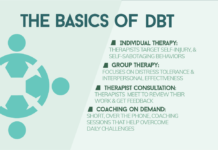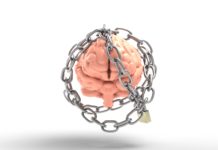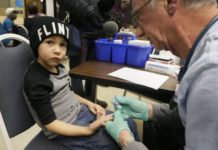Dialectical Behavior Therapy Reduces Self-Harm and Suicide Attempts
A new meta-analysis finds that DBT reduces self-harm, suicide attempts, and reduces the frequency of psychiatric crisis service utilization.
Risk of Suicide After Hospitalization Even Higher Than Previously Estimated
New analysis of post-discharge suicide rates finds estimates 6 times higher than recent studies.
The Scarlet Label: Close Encounters with ‘Borderline Personality Disorder’
To help my non-recovery oriented colleagues understand the stigma/resentment associated with ‘borderline personality disorder,’ I simply mention this: “Let’s say I call you and say, ‘Hey, I’ve got a referral for you. She’s been diagnosed with borderline personality disorder . . .’” I need to go no further; without fail, my colleague will smile or laugh. We both know that such a referral is a no-no, so much so that it doesn’t even have to be mentioned; it is a given.
Psychodynamic Therapy Revealed to be as Efficacious as Cognitive Behavioral Therapy
Meta-analytic study finds that psychodynamic therapy outcomes are equivalent to those of CBT and other empirically supported treatments.
United Nations Report Calls for Revolution in Mental Health Care
In a new report, the United Nations Special Rapporteur on the right to health, Dr. Dainius Pūras, calls for a move away from the biomedical model and “excessive use of psychotropic medicines.”
Mental Illness Vs. “Bad” Behavior
Allen Frances has claimed that "It's a great mistake to confuse bad behavior with mental illness." Yet two of the so-called mental illnesses (conduct disorder and antisocial personality disorder) consist essentially of "bad" behavior, while in at least six others, "bad" behavior is an integral part of the problem.
Study Examines Women’s Experiences of Hearing Voices
An international group of researchers from multiple disciplines has published a historical, qualitative, and quantitative investigation into voice-hearing in women. The interdisciplinary project, freely available from Frontiers in Psychiatry, explores how sexism, exploitation, and oppression bear on women’s’ experiences of hearing voices.
Top Ten Things You May Not Know About the ICD-10
In this piece for Psychology Today, Dr. Jonathan D. Raskin lists 10 facts about the current version of the International Classification of Diseases, which is...
Drug Treatment for Borderline Personality Disorder Not Supported By Evidence
New research published in the August issue of Psychiatric Annals evaluates the results of randomized control trials on the use of various psychotropic drugs for patients diagnosed with borderline personality disorder (BPD). Despite the “American Psychiatric Association’s practice guidelines endorsement of SSRIs as first-line therapies for BPD,” the results of the meta-analysis reveal that pharmacotherapy in BPD is “not supported by the current literature,” and “should be avoided whenever possible.”
Multisystemic Therapy No More Effective than Standard Care for Antisocial Behavior
Study counters previous evidence supporting multisystemic therapy, finding adolescents are just as likely to have out-of-home placements when receiving multisystemic therapy versus management as usual.
NARPA Reflections: The Necessity of Disability
I think it is time to reclaim the word disability. Disability needs to be appreciated. To the extent we value community over isolation, anything anyone cannot do, or needs help with, builds community. There are infinite examples in every career and walk of life of how necessary “disability” (since we're calling it that) is for connection, service and meaning in life. Without it we'd have absolutely no need for each other. And the fastest way to despair is to feel unnecessary.
Study Identifies Psychiatric Patients at Greatest Risk of Coercion
In an effort to reduce coercion, researchers isolate associated factors including age, relationship status, location, and diagnosis.
Omega-3 Screening for Psychiatric Symptoms?
There is a substantial body of evidence suggesting that not getting enough omega-3 fatty acids in your diet may be connected to a diverse array of psychiatric symptoms. In a new study published this month, psychiatrist Robert McNamara and Erik Messamore provide an overview of the evidence and call for screening of omega-3 deficiency in people experiencing symptoms associated with ADHD, depression, mood disorders, and psychosis.
Personality Disorders Largely Being Treated Inappropriately by Psychiatrists
Psychiatrists are giving drugs to most people with emotionally unstable personality disorders outside of the best-practice clinical guidelines, and an accompanying editorial stated that the reason is because "therapy takes time."
Sociologists Interrogate Neurobiological Explanations in Criminology
A discourse analysis conducted by sociologists finds problematic assumptions and practices in the field of neurocriminology.
Neoliberalism Drives Increase in Perfectionism Among College Students
Meta-analytic study detects upsurge in patterns of perfectionism in young adults and explores how neoliberalism contributes to this trend.
More Evidence for the Lasting Psychological Impact of Lead Exposure in Childhood
New research points to numerous harmful effects of high-level lead exposure in childhood on adult mental health and personality characteristics.
The Role of Intergenerational Trauma in the Perpetuation of Childhood Maltreatment
A new study examines the role parent borderline pathology plays in the perpetuation of childhood maltreatment.
Unhelpful Utterances: 6 Comments We Should No Longer Hear From Mental Health Professionals
Professionals are paid to share their wisdom with those who are, typically, less informed. But, when dealing with mental health professionals in the psychiatric arena, it is wise to retain a degree of skepticism about the words spoken by the doctors and nurses commissioned to help reduce human misery and suffering.
Investigation Reveals Alarming ECT Practices in England
Audit of ECT usage, demographics, and adherence to guidelines and legislation raises concern over its continued use.
Mirror, Mirror: Study Challenges Notion of a Narcissism Epidemic Among Youth
One study indicates that pointed fingers incriminating youth for narcissism may be pointed in the wrong direction.
Millionaire Psychiatrist Accused of Deliberate Misdiagnosis for Gain
Multimillionaire U.K. psychiatrist Dr. George Hibbert is being investigated - potentially by Parliament - for deliberately misdiagnosing hundreds of parents with 'personality disorders' in order to...
How Complex Trauma Changes a Person
From GoodTherapy.org: Although not currently listed in the DSM, the diagnosis of complex post-traumatic stress (C-PTSD) has gained widespread acceptance in the mental health community. The...
I Wonder if There is Some Axis II Going on Here? Further Thoughts on...
This blog was prompted by an invitation to do a guest post on the site of one of my favorite bloggers, 1 Boring Old Man. This is my response to the notion that there are certain conditions - Schizophrenia among them - that correspond more directly to biomedical conditions
Deconstructing Psychiatric Diagnoses: An Attempt At Humor
Based on my experience both as a therapist and client in the mental health field, I have learned that when therapists or psychiatrists give you the following diagnoses all too often here is what they really mean:
























